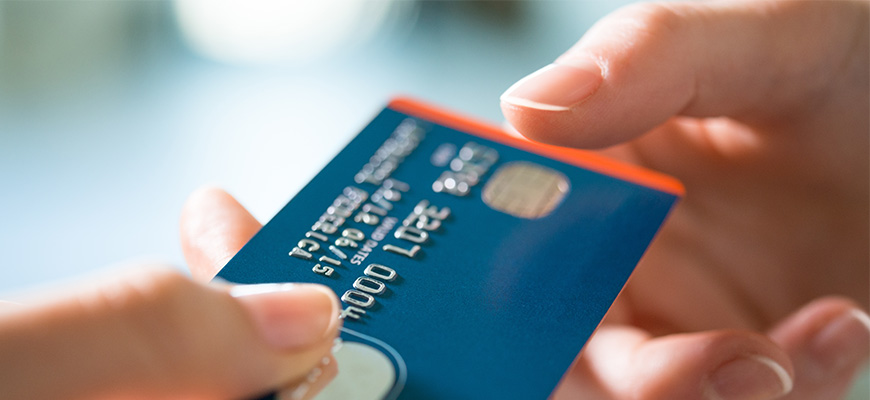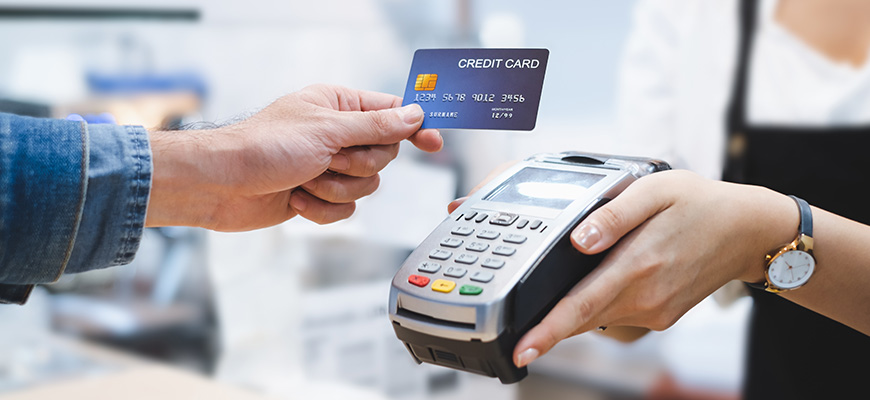A secured credit card is a type of credit card that is backed by a cash deposit from the cardholder, which becomes the credit limit on the card. Providing this deposit means that the card issuer is taking on less risk when issuing credit, so they can be more comfortable lending to someone with a low credit score or no credit history. This makes a secured card a great option for establishing a credit score from scratch or rebuilding it after a negative financial event.
You should keep your secured credit card until you've at least built a good credit score and been approved for a great unsecured card — that ideally means favourable terms, good rewards, and low or no annual fees. A good score generally sits between 660 and 724.
There's no deadline to cancel a secured credit card after building a decent credit score, and it’s actually a good idea to keep it open or upgrade the same card to an unsecured one so that you maintain the credit history you’ve built with it, as well as keeping your credit utilization rate low.
Keep reading for more information about how long you should keep a secured credit card, the effects of closing a secured card, how to go about closing it and more.
How Long Does It Take to Build Credit Using a Secured Card?
Many people see improvements within 12-18 months of consistent bill payments and other solid credit-building habits, but there's no set time by which a secured credit card will improve your score. The process varies for everyone and depends on factors like your current credit score and spending habits.
The goal with using a secured credit card is ultimately to establish a history of on-time payments and to keep your balance (and thus your credit utilization rate) low. These habits can speed up the amount of time it takes to build your desired credit score.
By contrast, if you consistently max out your credit limit and fall behind on payments, you'll have issues improving your score and may in fact see a decline.
Should I Keep a Secured Credit Card After I've Built Credit?
Keeping your secured credit card open even after building a high enough credit score for an unsecured card has its benefits, especially if it has no annual fees associated with it. Not only can a secured credit card have rewards like cash back or points, but the longer you have your secured card open, the longer your credit history. Your secured card can also help to lower your credit utilization rate.
However, if your secured card has an annual fee, you should consider whether the card's benefits are worth the cost.
Does Closing a Secured Credit Card Have an Impact on Credit Score?
Closing your secured credit card could negatively impact your credit score by reducing the length of your credit history and/or increasing your credit utilization rate.
Credit history can account for around 15% of your credit score. It shows lenders that you can be trusted to make payments on time and that you've been doing so for an extended period.
If you close your secured card, you may see a dip in your credit score because you've eliminated part of your credit history. Your credit history now relies on the age of your other credit products, which may be young if the purpose of your secured card was to build your score and apply for other credit products. But, if you have other cards or loans that are older than your secured credit card, closing your secured card would likely have little to no effect.
Put simply, if you spent the past year building your credit with a secured credit card and this is your only credit product, your entire credit history depends on your secured credit card. If you then take out an unsecured credit card and immediately close your secured one, your credit history would be reduced from around 12 months to zero. As a result, you would likely see a dip in your credit score.
Keeping your secured credit card open also reduces your credit utilization rate, which accounts for 30% of your credit score. Your credit utilization rate is the amount of credit you regularly use compared to the amount of credit you have available to you.
If you close your secured credit card, it reduces your available credit and therefore increases your credit utilization rate, which may decrease your credit score.
For example, suppose your secured credit card has a limit of $2,000. After you've built up your credit score, you receive an unsecured credit card with a limit of $5,000, and you continue to spend $1,000 a month among your cards regularly. This means you have a credit utilization rate of $1,000/$8,000 or 12.5%.
However, if you close your secured credit card, this reduces your available credit to $5,000. Your credit utilization rate then increases to $1,000/$5,000 or 20%. This increase in credit utilization rate from 12.5% to 20% could reduce your credit score.
How Do I Close a Secured Credit Card Properly?
If you do choose to close your card, make sure to take the proper steps:
Pay it off: Of course, you want to pay off your card before you close it. Otherwise, there might be penalties, or your card issuer may just pay the balance with your security deposit.
Update pre-authorized payments: Ensure that subscriptions and other automatic bill payments no longer use the card you're about to cancel. Otherwise, payments may bounce after your secured credit card is closed, causing service issues or even dinging your credit score.
Close the account: Call your issuer and ask to close your account. Make sure you document your call and ask for evidence of the closure in writing.
Destroy the physical card: Shred or cut up your now-closed credit card to prevent identity theft. You want to ensure that no one can take the cut-up pieces out of the trash and put them back together.
Check your credit report: Keep your eye on your credit report to ensure your card issuer correctly reports the credit closure. Sometimes, issuers may make mistakes when closing your card, and you don't want this error to negatively impact your credit score.
Does a Secured Credit Card Ever Become Unsecured?
Some secured credit cards allow you to "graduate" from its secured status to a traditional, unsecured card. In this case, the issuer would refund your security deposit and continue your card like any other unsecured credit card. This might require you to call your credit card issuer to make a request, or it may be automatic after you’ve established a record of timely payments.
Choosing to upgrade your card has the benefit of convenience, as you can keep your card on the same secured credit card account and issuer, who you've already grown accustomed to. It may also prevent another inquiry on your credit report, and will allow you to maintain your credit history length. Your issuer might even extend additional credit to you, decreasing your credit utilization rate.
Graduating your card is never guaranteed. Other credit card companies may offer you an unsecured card while your secured card issuer doesn't. This ultimately depends on the criteria and policies of the different credit card companies.
The Bottom Line
Secured credit cards require a security deposit, which reduces the issuer's risk, making secured cards easier to obtain if you have a bad credit score. This is a great way to build or rebuild your credit score when you're not qualified for an unsecured card.
In time, often 12-18 months, you will likely qualify for an unsecured credit card. In this case, it's advisable to maintain your secured card or graduate it to an unsecured one. This lets you keep the credit history that you've built with your secured card, preventing a dip in your score upon cancellation.











